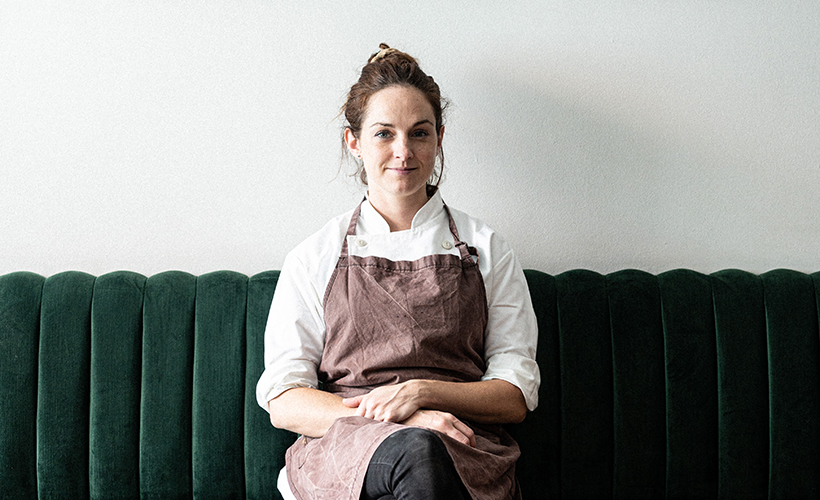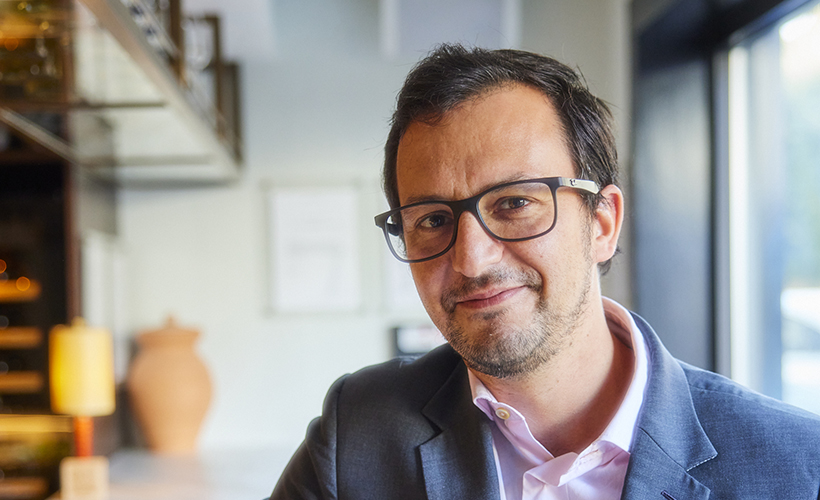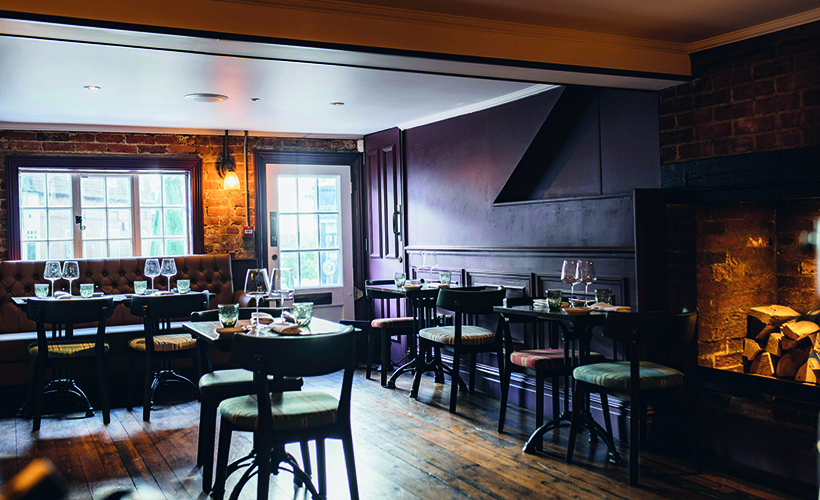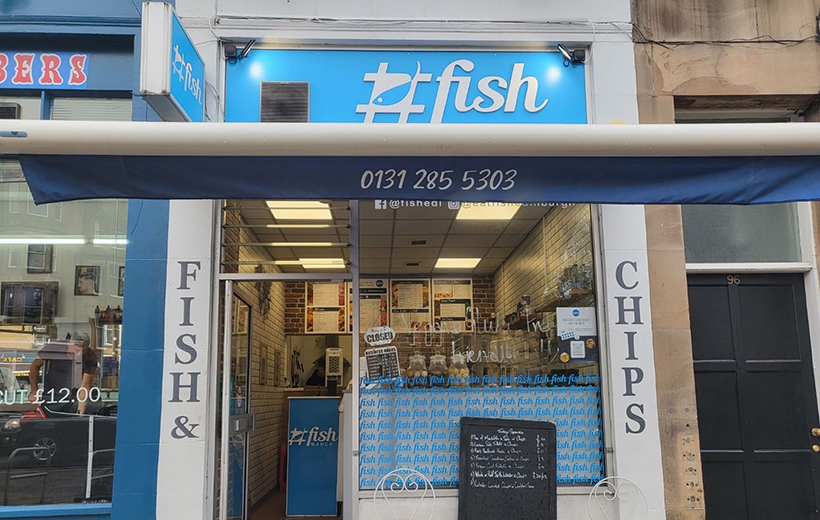The energy bill crisis is forcing hospitality businesses to rethink their future. We asked seven operators how they plan to cope with cost increases.
"Energy bills are more than our rent"
James Allcock, owner, the Pig & Whistle, Beverley, East Yorkshire
James Allcock's (pictured main) fixed tariff ends later this month. His existing supplier refused to quote for his business, and the first offer he received was for £23,000 a year, compared to the £3,000 he currently pays.
He says: "That's more than we take a month. It's inordinate. It's gone from one of our smallest bills to our joint second-highest bill, with VAT and just behind wages. It's more than our rent."
The quote has since reduced to £16,500, which, he says, is still "inordinate" and even with a government cap he expects to be paying three or four times what he is now.
He says: "Unless [the price cap is] hand-in-glove with some VAT support, it's not going to be enough. The thing that's frightening is that they're saying it might even be November before we see any support. It's too late – I know people who are giving the keys in now.
"It's all too familiar. It's similar to during the pandemic, when the government makes a speech about what they're going to do but don't do it. It's ridiculous –it's sticking plasters on broken legs to fix the energy for six months. Equally to delay that by three months, I can't think of anything more insulting."
Allcock says the industry needs the details of government support now. For it to be implemented quickly and to last for at least two years, in line with the domestic support package. He stressed that if businesses have the tools to trade they can help pull the country through the impending recession.
He added: "We've proved we can be part of the recovery, we showed that with the pandemic you only have to look at the figures to see that hospitality is essential to recovery. The other thing is we're one of the only industries that employs people in every constituency. It's a huge industry.
"We've got a good little business, it's a nice little restaurant that does alright, but I've still not paid off the last once-in-a-lifetime crisis. I spent the first two years paying off the money I needed to open, the next two years borrowing more to get through Covid, and now we're crying about energy."
"Reducing VAT would be a major, immediate help"
Harriet Mansell, chef-patron, Robin Wylde and Lilac restaurants, Lyme Regis
Harriet Mansell has called on the government to reduce VAT, saying "it's become increasingly difficult to make ends meet".
She says: "I've heard of lots of really shocking energy bills –it seems everyone has been affected. Our electric and gas are both capped until early next year, but that's really only a temporary reprieve. With VAT and the cost of everything having gone back up, we were already operating on very slim profit margins as it was. Everything has gone up by 5% to 50% and we haven't been able to increase prices in line with that, so it's become increasingly difficult to make ends meet.
"I do think reducing VAT would be a major, immediate help – hospitality is on its knees. At every turn you think it's going to get easier but it doesn't. We're at the hardest moment yet because everyone has already used their reserves to get through the pandemic."
With the threat that the cost-of-living crisis and impending recession could reduce covers, along with the prospect of a sharp increase in energy bills in the new year, Mansell is concerned for the future.
She adds: "In regional coastal towns things have gone really quiet after summer and the cost of living is starting to hit. We look like we're facing a quiet winter and that's the scariest thing for me."
The chef and restaurateur spoke to her local MP about the pressures facing hospitality but was told that fine dining restaurants were not the priority. She said: "We're so much more [than the food we serve]. We've got apprentices, I have over 20 people in my team, we work with the community, we're adding to the area with these passionate, creative people making beautiful food. We're working with education providers to get schools into nature and foraging – there's so much we do, it's not just about restaurants.
"The conditions right now are stacked up against small and independent business owners, particularly because there's no reprieve and no fallback. Not many people have that safety net, they've used up every resource to survive, and that's why we're seeing so many businesses going under."
"The pricing and availability of sustainable energy is difficult"
Daniel Alvarado, general manager, Dinings SW3, Chelsea, London
Energy bills have tripled at Japanese izakaya restaurant and sushi bar Dinings SW3. This, combined with the pressures of staff shortages and inflation has forced it to close one day a week.
Daniel Alvarado says: "As much as we would like to move into sustainable energy sources, when you look into the pricing and availability, it's very difficult. But because of the situation, everyone is moving to those. I think the pricing and the waiting times for any of those installations will take forever. You need some sort of support from the government or local authority."
Alvarado said kitchen equipment takes a long time to heat up, meaning that operators often have no option but to keep it on unless they have the financial resources to replace it.
However, the team at Dinings SW3 has been taking smaller steps to implement savings in the restaurant. For example, food compost is being sent to farms, leftovers are being fermented and the venue celebrates its ‘fin-to-tail' – its take on ‘nose-to-tail' – policy, by offering canapés that use all parts of a fish.
Alvarardo adds: "People are actually very understanding and curious. In Japanese culture there is wabi sabi, the beauty of imperfection, so we can link all of these things. Little things go a long way."
"I don't think it's right for us to pass on costs to our guests"
Simon King, founder, the Victoria, Surrey
The Victoria community pub in Oxshott, Surrey, is coming up to a year old. Simon King says all the normal challenges of establishing a business had been compounded by "a lot of things out of our control".
He says: "I go into these opportunities fully expecting to dig deep and find clever ways of overcoming challenges, but it feels as if the challenges are unrelenting and they seem to get bigger with the utilities element."
King feels his financial options are limited, because the energy crisis is impacting everyone, leaving customers reluctant to spend.
He adds: "A lot of us are in the same boat and I don't think it's right for us to pass on these costs to our guests and I don't think our guests really have the bandwidth either."
Since energy bills account for 25% of total operating costs compared to 10% previously, the team have been looking into alternative sources of energy, such as wood. The pub already had facilities for a wood-burning fire. However, King points out that many operators have already turned to wood, making it a much more competitive market than it was before.
He says: "Even the price of wood has gone through the roof and I've been told it's going to double. Wood suppliers don't necessarily open new accounts right now because they are so inundated with inquiries."
King would like to see more government support if hospitality businesses are to use renewables and implement energy-efficient equipment in the long run.
He adds: "The speed at which this has happened is also why the government needs to step in, because making [energy source] changes like this takes time and I feel that it's a very steep spike."
"Many feel the potential threat of closure is on the horizon"
Lionel Benjamin, co-founder, AGO Hotels
For hotels that recently renegotiated contracts, energy bills are taking up 30% of total operating costs compared to 8%-12% previously, according to Lionel Benjamin, co-founder of AGO Hotels, which includes several Ibis Budget branches across its portfolio.
He says: "We've all tried to turn towards government to help, but despite the efforts of [UKHospitality chief executive] Kate Nicholls and many others, it seems to have taken no bearing. It's fallen on deaf ears."
In the meantime, Benjamin is trying to mitigate the situation by thinking of creative methods to reduce energy consumption, which has led to an acceleration of environmental, social and governance (ESG) programmes across the board.
He adds: "We've tried to implement as quickly as we can what we were intending to put in over a period of time, such as infra-red sensors in public areas and reducing boiling temperatures by a couple of degrees."
Longer-term solutions include ground water pumps, solar panels and combined heat and power units, which use gas to create electricity.
However, he adds: "It's exceptionally difficult to find the investment to put into ESG at the moment. We know that legislation is being implemented, but to do this now, on the back of Covid, is very challenging for an industry that's been on its knees. Many feel the potential threat of closure is on the horizon."
"We're resilient, but not that resilient"
Ed Thaw, director of Leroy/Royale, London
Energy bills have doubled for Ed Thaw, who owns the Michelin-starred restaurant Leroy and rotisserie chicken diner Royale, both in East London.
He says: "I'm still not clear what the solution will be. A cliff edge in six months' time doesn't seem to be good enough. Understandably, the prime minister has only just got in and is now in the midst of spending 10 days with regard to Queen Elizabeth II, so cost of living has been put on the back burner, but it's going to be there once we get back."
Thaw believes the energy crisis raises the "perfect argument against privatisation" and urges the government to reflect on the decisions it made over the pandemic, particularly in relation to its interventions in the hospitality industry, such as furlough.
He adds: "We've had a hell of a two years. We're resilient, but not that resilient. It's heart-breaking to think that there are going to be many good businesses that are just going to go to the wall, and all before this help could kick in.
"The issue at the minute has been staffing, but now it's becoming energy. Staff wages have gone up – that's reasonable in the context of staff – but you can't really work with uncapped energy prices that could just triple."
"No one's saying when it's going to end"
David Armstrong-Reed, owner and operations manager, #Fish, Edinburgh
Energy bills at #Fish, a fish and chip takeaway in Edinburgh that has been operating for two and a half years, have quadrupled, with figures jumping to £1,200 a week. The weekly rate has almost doubled, considering that in December 2021 David Armstrong-Reed was being charged £3,000 a month via direct debit.
Energy bills have overtaken rent, coming in as the third biggest expenditure after fish (£3,500 a week) and staff salaries (£3,000 a week). Despite working for 70 hours a week, Armstrong-Reed can only afford to pay for 30 hours' worth of his work, and even that is at minimum wage.
The fish and chip industry was "already feeling very under pressure" as a result of the invasion of Ukraine, he says, which led to tariffs on fish and a shortage of cooking oil.
He says: "I think for smaller operators and more old-fashioned, established operators, this [energy crisis] will be the straw that breaks things."
Armstrong-Reed charges £11.50 for a cod or haddock with chips, but expects the price-point to rise further. Although his city centre clientele has coped with the cost increases so far, he is worried the rest of the industry will not be able to bank on deeper pockets.
He says: "From what I'm hearing through [online] industry chat groups, there are many, many fish and chip shops who will be gone before the end of October. There were three posts today. People are already under massive, massive pressure.
"No one's saying when it's going to end. We've been told we'll get a price increase now, but we've been told there's another one potentially coming in January. I don't know where to turn to."
So what can be done? The Carbon Trust and Hospitality Action advise on reducing costs and looking after mental health in financial hardship
The Carbon Trust
Heating
Heating can account for more than 40% of energy use in non-domestic buildings. It is possible to save up to 20% on heating costs through simple energy saving measures, such as heating spaces to appropriate temperatures, maintaining boilers and pipework, ensuring timers, control systems and thermostats are correctly set, and upgrading systems to create heating zones.
Air conditioning
It takes energy to heat or cool the air inside a building. If that air escapes through inefficient ventilation systems, or through opened windows and gaps in the building fabric, energy is wasted. Maximise opportunities for natural ventilation and ensure mechanised ventilation is used only when necessary. Regular cleaning of ventilation can increase efficiency by 25%.
Lighting
By implementing lighting controls and efficient luminaires, lighting energy costs can be reduced by up to 50%. LEDs, which have the highest efficacy and lamp life, are easy to control and have no warm-up period. Most businesses will benefit from occupancy sensors, which can achieve savings of 30% to 50%.
Catering
Typically, 65% of the energy supplied by cooking equipment will be extracted through the canopy as convected heat, 5% will be retained in the food being cooked, and 30% will enter the kitchen area as radiant heat. Switch off or turn down equipment when it is not required.
Seals and gaskets on oven doors should be checked weekly. Gas burners should also be checked weekly for a blue flame and efficient combustion. Consider replacing any kitchen equipment over 15 years old.
Leisure facilities
Using a pool cover when the pool is not in use can produce substantial savings through reducing the need for heating (water and pool hall air), pool hall ventilation and make up water. Solar water heating can be effective for pools and changing facilities and is relatively easy to connect to a conventional heating system.
To see more go to: www.carbontrust.com/resources/hospitality-sector-energy-saving-guide
Hospitality Action
Mark Lewis, chief executive of Hospitality Action
The Caterer's research bears out our own experience. There is a clear link between financial hardship and deteriorating mental health and the situation is becoming more acute.
In recent weeks we've received calls from pensioners who've already turned the gas off through fear of unsustainable bills; mums and dads losing all hope as they become engulfed by bill after bill; and proprietors contemplating taking their own lives because the responsibility they feel towards their staff is too much to bear.
Fifty per cent of all grant applications we receive are from families in high-risk debt, which places them at risk of homelessness, and 35% of applicants cite deteriorating mental health as part of the reason for asking for support. The knock-on effect for hard-pressed businesses is a more stressed workforce at higher risk of absence.
Hospitality Action provides a free and confidential 24/7 helpline. It can provide in-the-moment mental health support and can signpost callers to additional sources of help. The number is 0808 802 0282. In addition to its own grants programme, the website also provides guidance on sources of financial support for families struggling to make ends meet.
Hospitality Action's Employee Assistance Programme provides wraparound care to all employees of subscribing companies – to find out more email eap@hospitalityaction.org.uk.
Continue reading
You need to be a premium member to view this. Subscribe from just 99p per week.
Already subscribed? Log In















